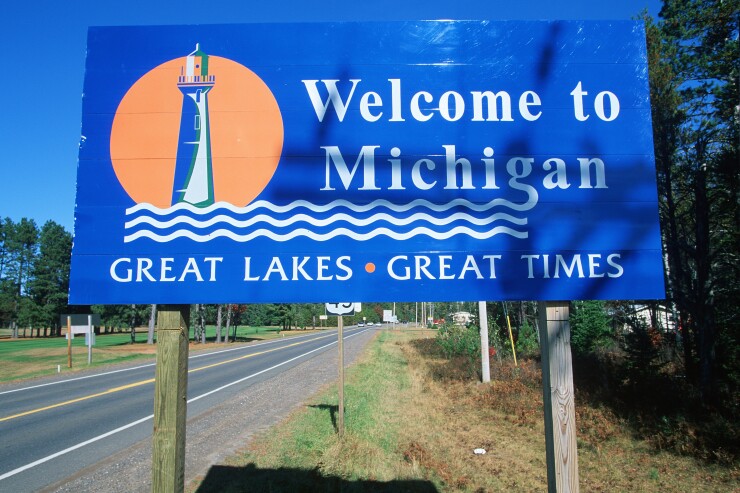Michigan officials unveiled plans for $500 million in surplus revenues and reducing taxes isn’t on the agenda.
Michigan’s House and Senate fiscal agencies have estimated that the state’s general fund revenues will be up $156 million for 2018 and $72 million for 2019, compared with what was estimated in January. For the School Aid Fund, revenues will be up $160 million for 2018 and $110 million for 2019, compared with the January estimates.
Lawmakers plan to spend a large chunk of the revenues on fixing the state’s roads but the state will also see increase spending on school safety and boosting the state’s rainy day fund and Michigan’s Marshall Plan for Talent. The Marshall Plan is a partnership between companies, educators and others to help the state invest in ways to attract and develop talented workers to fill job openings in Michigan.

"Lawmakers seem dead set on spending more on roads, which is fine," said James Hohman, Director of Fiscal Policy at the Mackinac Center for Public Policy.
What’s not on the targeted spending list is a cut in taxes. Last year legislators voted against a plan to that would have rolled back the state income tax saying that there wasn’t enough money to afford the reduction.
“The extra money from tax revenue growth is more than what that rejected tax cut would have cost the state treasury,” said Hohman.
Hohman also suggested that the extra spending could be targeted at tacking Michigan’s underfunded pensions. “It would also be good to pay down state retirement system liabilities, which have only grown even during a period of extended market growth,” he said.
“We are excited the surplus funding will be directed to the Governor’s major budget priorities - hundreds of millions dollars more to improve our roads, a major investment in Michigan’s Marshall Plan for Talent, and funding for school safety initiatives,” Anna Heaton, spokeswoman for Gov. Rick Snyder, said in an email.
“These ideas all fall under the realm of good one-time spending uses; they would not require additional funding for years down the road,” Jordan Newton, research associate at the Citizens Research Council of Michigan, wrote in a blog post.
Kurt Weiss, spokesman for the Michigan State Budget Office, said the surplus fund projections are a mix of "one-time money," from continued growth in income tax and sales tax collections, which have outpaced projections from January, and should only be spent on one-time items such as a capital purchase or a specific project, and ongoing revenue, which can be used to boost ongoing programs.
“This surplus was a bit larger than normal primarily because of increased revenues from the sales tax,” Weiss said in an e-mail. “Michigan’s economy continues to show steady growth and the economists continue to forecast growth in the coming years
A breakdown on how some of the surplus will be spent sees an increase of more than $400 million for infrastructure funding, $330 million which is for roads. The state already made a $175 million supplemental appropriation to jump start road improvements earlier this year, and additional increases from one-time sources can move the needle on catching up with poor road conditions.
State officials also plan to spend an extra $115 million on the state’s rainy day fund bringing the total to more than $1 billion. Michigan savings fund is a peak for recent years but market observers have said in the past that is still unlikely to survive through a recession. “Even though the state is not expected to enter a recession soon, and because this new money should be considered one-time revenues, storing that money away could be fiscally prudent, given the challenges the state is facing,” Newton said.
Officials also plan to spend $58 million for school safety initiatives and will fully fund Snyder’s $100 million Marshall Plan initiative.
The spending plan keeps the state on track for releasing a new state budget this month for fiscal 2019 which begins on Oct.1. "For the past seven years, we have been successful in getting budgets signed well ahead of the Oct. 1 deadline, thus avoiding a government shutdown," Weiss said.





